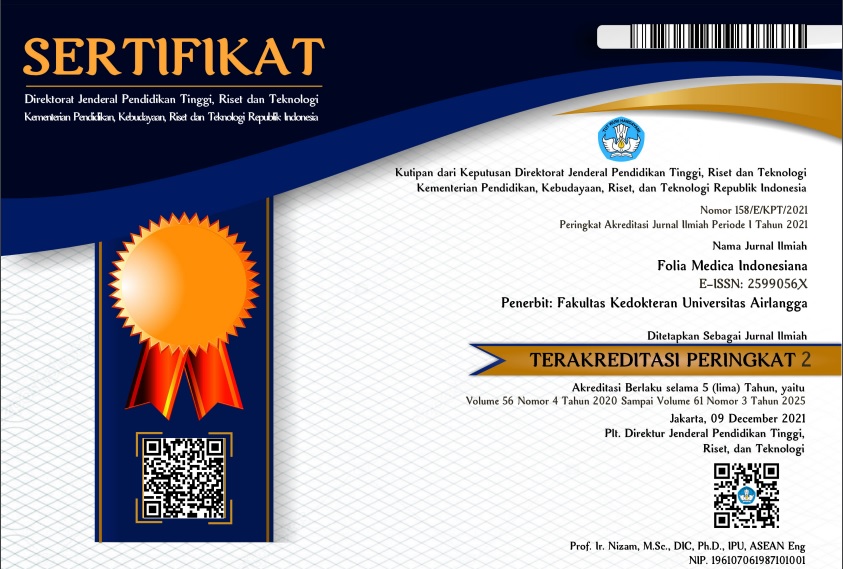Abstract
Singawalang leaf is used as a traditional medicine by the communities suffering from pneumonia due to TB disease. However, experiments to explain it's toxicity are few. Therefore, this study was conducted to disclose it's toxicity. This was an experimental laboratory study using post–test only control group design. The sampling method was simple random sampling. The animals were randomly divided into 4 (four) groups, each group consisted of 8 (eight) mice, the control group (P0) received distilled water as a solvent material. Treatment group 1 (P1) obtained ethanol extract of singawalang (Petiveria alliaceae) in low doses of 90 mg/kgbw. Treatment group 2 (P2) obtained ethanol extract of singawalang (Petiveria alliaceae) in medium doses of 180 mg/kgbw. Treatment group 3 (P3) obtained ethanol extract of singawalang (Petiveria alliaceae) in high doses of 360 mg/kgbw. Th extracts were given with sonde once a day for 30 days. Results showed that the leaf ethanol extract singawalang (Petiveria alliaceae) does not induce sub-acute necrosis effects on kidney of male white mice (Mus musculus) in doses 90 mg/kgbw, 180 mg/kgbw, and 360 mg/kgbw.
Keywords
Singawalang extract, necrosis, kidney
First Page
62
Last Page
65
DOI
10.20473/fmi.v52i1.5212
Publication Date
8-8-2017
Recommended Citation
Naibaho, Ardy Hamonangan; Mustika, Arifa; and Rahaju, Anny Setijo.
2017
Short-term toxicity test of singalawang extract on male white rats kidney necrosis.
Folia Medica Indonesiana. 52,
1 (Nov. 2024 ), 62-65.
Available at: https://doi.org/10.20473/fmi.v52i1.5212






